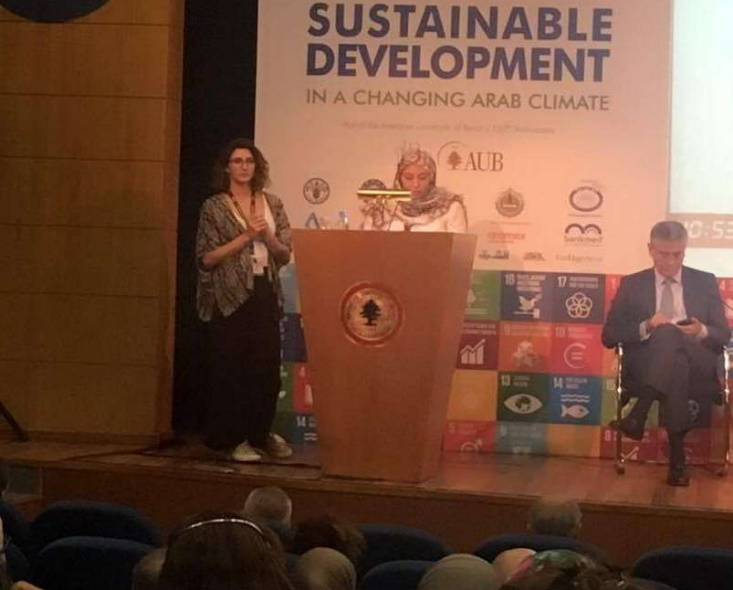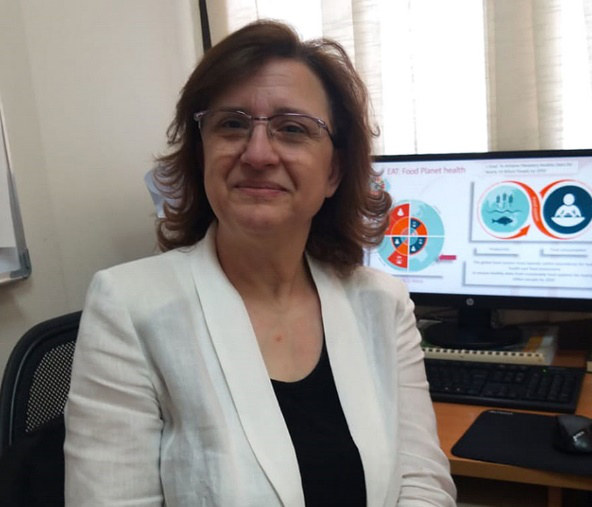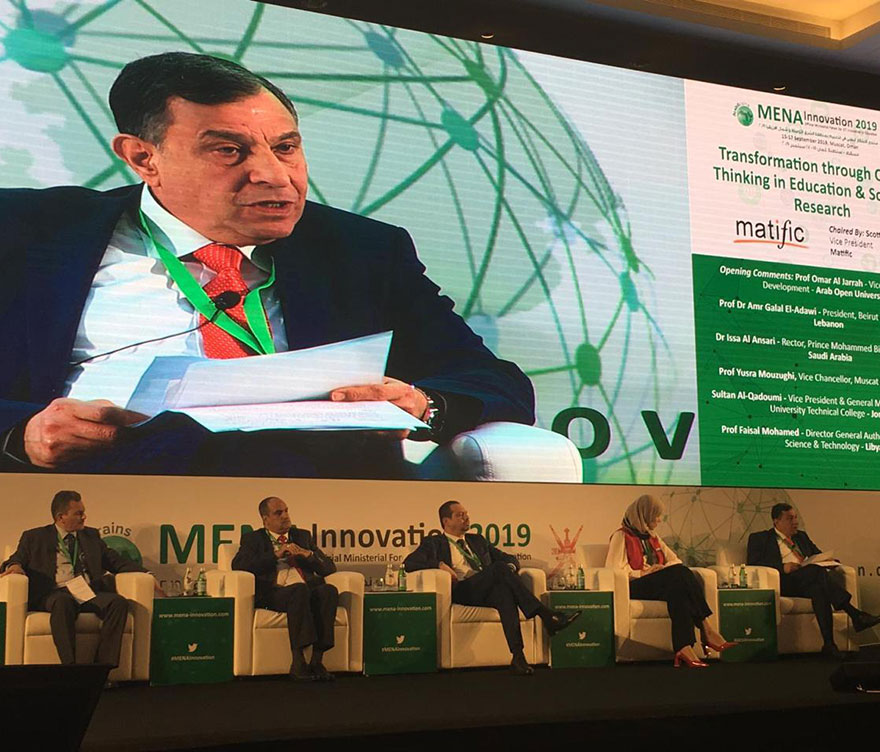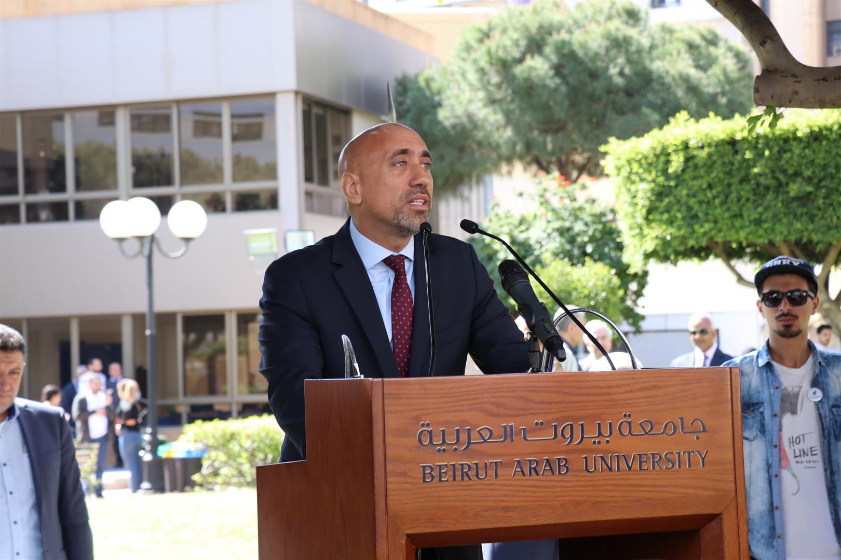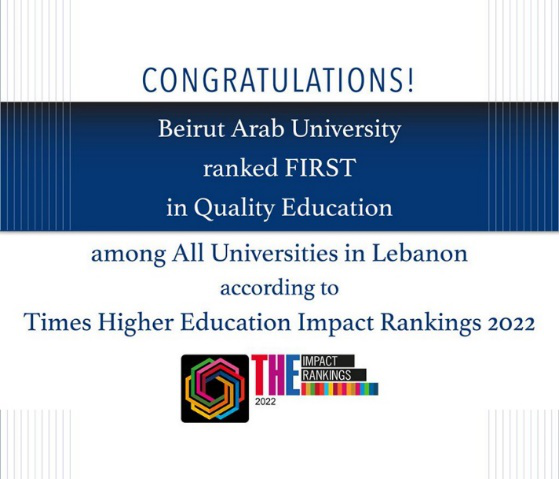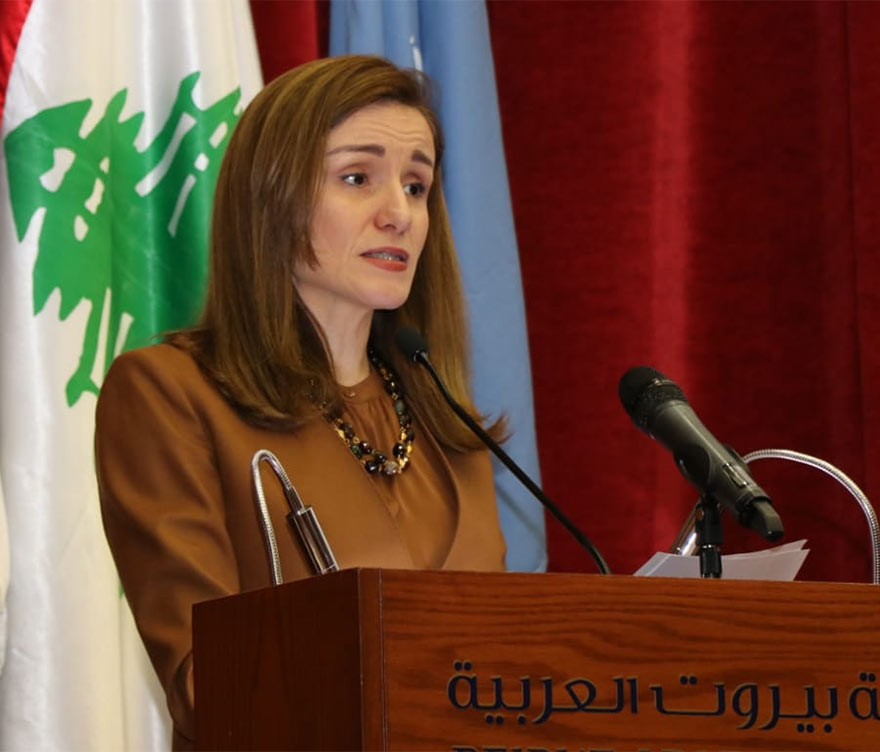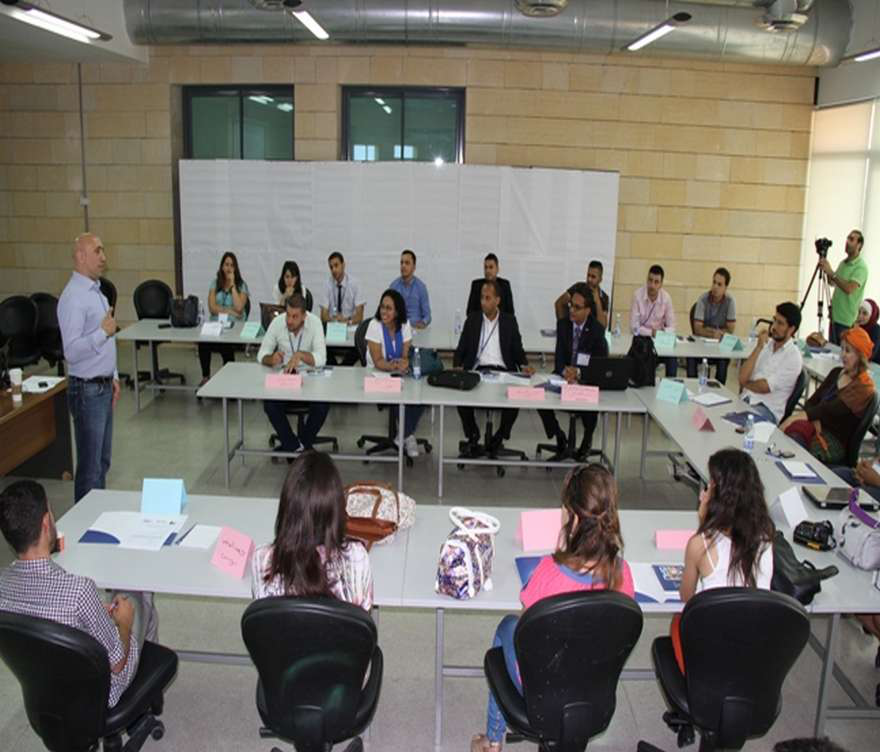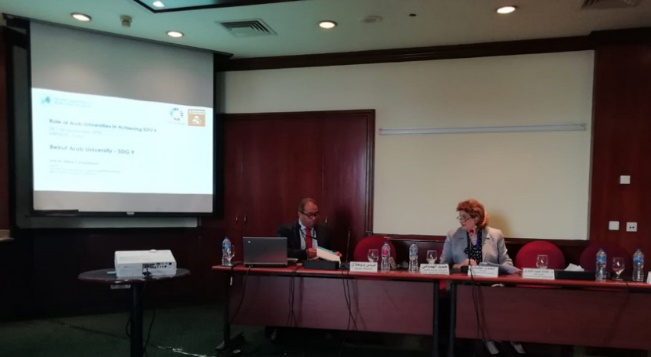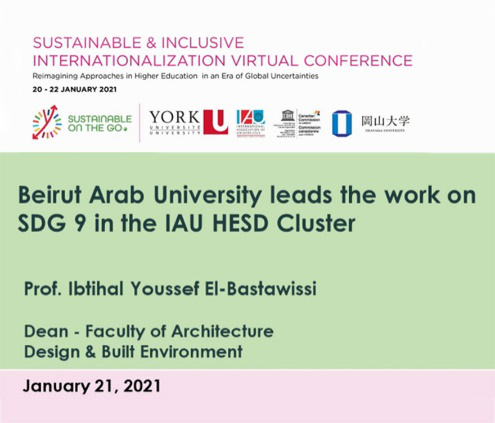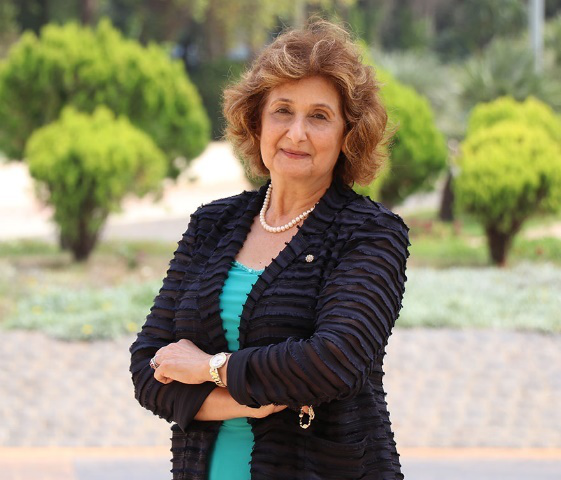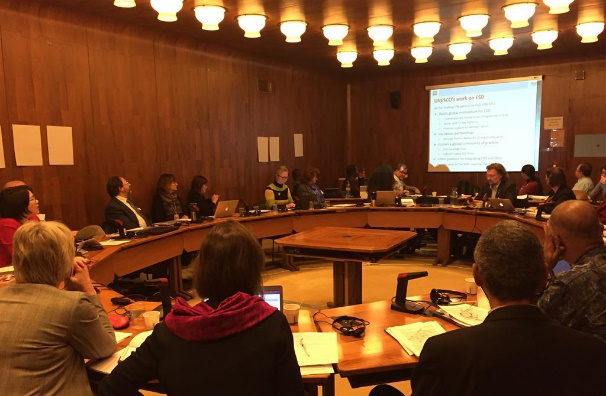Commitment to meaningful education around the SDGs across the university
The students from the Faculties of Engineering, Pharmacy, Law and Political Science, and Science at Beirut Arab University attended the 9th Annual AFED Conference of the title of “Sustainable Development in a Changing Arab Climate”.
The conference was attended by influential people from around the world to discuss the upcoming Sustainable Development Goals. The university students, named Future Environmental Leaders Forum, participated in multiple sessions, presented by AFED authors and international figures, on how to face the current challenges standing in the way of SDG.
The 2-day conference ended with the students writing and presenting their own statements on how to achieve these goals despite all the obstacles in the Arab World.
The Faculty of Health Sciences at Beirut Arab University presented by Dr. Leila Itani, Assistant Professor at the Nutrition & Dietetics Department delivered a lecture on the 8th of April 2022 entitled "Sustainable Healthy Dietary Patterns". This participation was part of 8 modules offered through the educational activities of the series of SDGs Courses organized by the university of Pavia /Italy for Spring 2021-2022.
The course aimed to provide knowledge on nutrition, lifestyle, and wellbeing, emphasizing a sustainable diet. In this respect, Dr. Itani presented in her talk the role of the food system and unhealthy dietary patterns in disrupting the resilience of the earth’s biophysical limits and transgressing their safe operating space contributing to climate change and loss of ecological resources.
Through the lecture, the definition and composition of the recently proposed healthy sustainable diet and evidence on its role in maintaining food system activities within the safe operating space of biophysical planetary boundaries was presented.
This diet is said to contribute to two global agendas for the food system namely the twelfth SDG by ensuring “responsible consumption” and “Paris agreement” to reduce climate change while ensuring a lower diet cost.
Ultimately projection on the planetary healthy diet is shown to conserve people’s health and averting death and sustaining ecological resources, eventually ensuring achievement of the three dimensions of sustainable development: social, economic and environmental dimensions.
The President of Beirut Arab University Professor Amr Galal El Adawi participated as a Speaker at the MENA Innovation 2019 that was held at Muscat-Oman. His speech was delivered through a panel discussion under the title of “Transformation through Critical Thinking in Education & Scientific Research”.
Prof. El Adawi focused in his speech the importance of creativity and critical thinking as they are the core elements in developing the student’s skills in education. Creativity is the key to success not only for students but also for the community at large.
At BAU, the following approaches are applied to facilitate students’ creativity: Real-life scenarios, independent learning, Problem-solving activities, Problem-based learning and Debates.
The employment of creativity and critical thinking in the teaching-learning process allows the implementation of a research culture throughout the undergraduate study period.
Furthermore, establishing Junior Research Teams in all BAU disciplines facilitates the instilling of research skills in our students.
The Junior Research Teams activities allow students to conduct experimental research, write, review articles, publish in international journals and participate in conferences by submitting either oral presentations or posters. BAU President stated that the Community engagement enriches critical thinking and research, and BAU always emphasizes on community problems through its researchers whether through academic staff or junior graduate students or junior researchers addressing the Sustainable Development Goals (SDGs) which effect every part of the community to invent strong ties between them.
He mentioned that BAU assesses the current state of regional scientific corporation among MENA Countries through collaboration based on international educational projects such as the TEMPES and ERASMUS projects that were founded to serve the scientific research in order to attract funds and expanding scientific collaboration relevant to different disciplines in research.
However, BAU is committed to providing high quality education, conducting high quality research and offering high quality community service. The academic staff member’s effort is distributed among education, research and community service taking into consideration the balance between scientific research, the educational process and community service.
The Human Rights Center (HRC) at Beirut Arab University organized its Seventh Exhibition of NGOs at Beirut campus under the title of "United Nations Sustainable Development Goals for the 2030 Agenda and Environment Preservation" in the presence of Minister of Environment Fadi Jreissati represented by Mrs. Anna Shaderfian.
HRC Specialist Ms. Salam Zahran opened the exhibition, stressing the fact that "this exhibition is an opportunity to introduce students to human rights issues with the participation of 47 associations and organizations concerned with all that aims to give the individuals their rights to contribute to the development of society at all levels."
BAU Secretary General and HRC Director Dr. Omar Houri stated that “this exhibition in its seventh edition has become an annual tradition for our students to meet with civil society organizations, the unknown soldiers in our country, keep abreast of their progress, discuss social affairs and harness these efforts to serve sustainable development. " In his speech, BAU President and Chairman of the HRC Board of Directors Prof. Amr Galal El-Adawi indicated that, since its establishment in 2009, the Center has played a major role at the university, Lebanese and regional levels through its relationship with local and international organizations.
BAU has also committed itself to achieving the 17 UN objectives both at the levels of research and education at the various faculties.
BAU also seeks to achieve sustainable development through the application of the concept of community service which is a key component of its current strategy. El-Adawi, also, thanked the participating associations and organizations for their participation in this exposition.
The fourth edition of the Times Higher Education (THE) Impact Ranking in 2022 was issued. This year’s assessment included 1406 Universities from 106 countries/ regions. This is the first year Beirut Arab University participates in the THE Impact Ranking which assesses Universities against the United Nations’ Sustainable Development Goals (SDGs).
BAU ranked third in Lebanon, a total of six Universities in Lebanon made it to the THE Impact Rankings list this year. BAU’s top scoring SDGs were SDG 4 “Quality Education”, SDG 3 “Good Health and Wellbeing”, SDG 5 “Gender Equality” and SDG 17 “Partnership for the Goals”, with BAU having the highest score in Lebanon on Quality Education with a score of 73.3 and ranking 100th worldwide.
BAU also held the second highest score in Lebanon on both SDG 3 & SDG 5. BAU embraces the United Nations’ Sustainable Development Goals (SDGs) within its strategy and had also aligned its research themes with these SDGs to guide BAU’s research production and enhance BAU’s visibility, collaboration, opportunities and partnerships.
BAU is hence proud to be a top scorer on quality education as it is our aim to provide inclusive quality education and empower our community with education, knowledge, and lifelong learning opportunities. This is just the beginning!
Under the theme “A Defender for a Right”, the Office of the United Nations High Commissioner for Human Rights (OHCHR), in collaboration with the United Nations Information Centre in Beirut (UNIC Beirut) and Beirut Arab University (BAU), organized a special ceremony to commemorate the 70th anniversary of the Universal Declaration of Human Rights (UDHR) and celebrate Human Rights Day.
The ceremony, which was held at BAU Premises, was attended by Bassam Al-Halabi, representative of Minister of State for Human Rights Affairs Ayman Choucair, MP and Head of the Parliamentary Committee for Human Rights Michel Moussa, MP and representative of Prime Minister-designate Saad Hariri Roula Tabesh, Regional Representative of OHCHR Regional Office for the Middle East and North Africa (ROMENA) Roueida El-Hage, Director of the UN Information Centre in Beirut Margo El-Helou, President of the Lebanese Constitutional Council Issam Sleiman, President of Beirut Arab University Amr Galal El-Adawi and BAU Secretary General Omar Houri.
The ceremony was also attended by representatives of military and security leaders, BAU professors and students, representatives of media outlets and organizations specialized in human rights issues. El-Adawi in his statement said that “intolerance, xenophobia and incitement to racial and religious hatred all endanger the very essence of human rights.”
He also noted that “BAU is one of the first universities in the Arab region that introduced the human rights course as a compulsory requirement for all university students and this shows its unwavering commitment to human rights principles.
It also established a Human Rights Center in 2009, whereby volunteers participate in awareness raising activities aiming at combating extremism through social media networks.” El-Adawi concluded his statement by saying that BAU is committed to the achievement of the 2030 Agenda and its related 17 Sustainable Development Goals (SDGs) as member of the Global Compact Network in Lebanon.
“BAU is constantly seeking to achieve social justice and sustainable development in the country,” he pledged.
For the fourth consecutive year, the Human Rights Center at BAU concludes the “Fourth Regional Summer Session” on the “Implementation of the Human Rights Agreements in National Systems”, in collaboration with the Arab Academic Network for Human Rights, and the Raoul Wallenberg Institute for Human Rights and International Humanitarian Law.
The event which was hosted 34 students from eight Arab countries, namely Lebanon, Jordan, Palestine, Egypt, Iraq, Algeria, Morocco and Tunisia. The course ran for 10 days, during which staff members at BAU, the Jordanian University and the University of Algeria, in addition to a group of experts in the field, such as Jordanian ex-Minister of Justice, Dr. Ibrahim Al Jazi, and Judges Yehia Ghabboura and Khaled Akkari, presented lectures.
Various topics were dealt with, most important of which is the current state of human rights in the Arab World, the status of International Agreements in National Systems, Women’s Rights, Children’s Rights, Enforced Disappearances, and the Rights of Migrant Workers.
Prof. Dr. Ibtihal Youssef El-Bastawissi represented Beirut Arab University at “the regional meeting on the role of Arab universities in achieving the Sustainable Development Goals” workshop, which was held under the patronage of Minister of Higher Education and Scientific Research in the Arab Republic of Egypt, Dr. Khalid Abdul Ghaffar.
The workshop was attended by a large number of Arab universities from Egypt, Mauritania, Sudan, Oman, Yemen, Syria, Iraq, Lebanon, Jordan and Palestine, as well as representatives of UNESCO regional offices in Egypt and Beirut.
Prof. Ibtihal El-Bastawissi presented the projects and activities carried out by Beirut Arab University in supporting the 17 sustainable development goals SDGs set by the United Nations focusing on Goal 9 since BAU was selected last year to represent and lead SDG 9 (industry, innovation and infrastructure) in the International Association of Universities (IAU) HESD (Higher Education and Research for Sustainable Development) Cluster.
Prof. El-Bastawissi also stressed within its presentation on how BAU community based projects, initiatives and research activities have been mapped to Goal 9 targets including supporting Sustainable and resilient infrastructure, promoting inclusive industrialization and enhancing scientific research.
The Dean ended up by highlighting on the new initiatives undertaken by Beirut Arab University to achieve the sustainable development goals as proposed in its strategy.
Beirut Arab University, represented by Prof. Ibtihal Y. El-Bastawissi (Dean, Faculty of Architecture – Design & Built Environment) and Siam University, represented by Prof. Pornchai Mongkhonvanit (President of Siam University) have been invited by the IAU (International Association of Universities) to share their experience in engaging with the Cluster and sustainability in the Networking Session in the York Virtual Conference on Sustainable and Inclusive Internationalization.
The conference was organized by York University – Canada, in partnership with the IAU, Okayama University – Japan, and Canadian Commission for Unesco.
The conference took place on 20-22 January 2021, while the Networking Session that has been hosted by the IAU was on 21 January 2021. In her presentation, Prof. El-Bastawissi focused on achieving the SDG goals generally and SDG9 particularly through education, research, conferences, new labs, innovation and community-based projects as well as wide-spreading BAU Journals, and developing partnerships with other universities.
Following this successful intervention in the conference, IAU represented by Hilligje van't Land, the Secretary General, welcomed BAU and Siam Universities to share concrete examples of community engagement focusing on social impact to be presented by IAU during the University World News Webinar entitled “Building Social Impact and Civic Engagement on 27 January 2021.
Prof. El-Bastawissi shared with the IAU seven examples on BAU Community Engagement and on the university’s role in promoting sustainable urban development.
The International Association of Universities IAU has launched a Global Cluster on Higher Education and Research for Sustainable Development (HSED) to advocate for the Key Role that higher education institutions play in achieving agenda 2030.
The global endeavour directly engages universities in addressing all 17 sustainable development goals SDGs. Beirut Arab University was selected to represent and lead SDG 9 Industry, innovation and infrastructure that aims mainly to promote inclusive and sustainable industrialization, enhance scientific research, and support economic development and human well-being, with a focus on affordable and equitable access for all.
The Dean of the Faculty of Architecture, Design & Built Environment Professor Ibtihal El- Bastawissi is the BAU Institutional Coordinator at the IAU Global Higher Education Cluster. The IAU HESD Cluster consists of 16 lead universities, one for each SDG; IAU leads the work on SDG 17 on global partnerships.
The lead universities, which are based in all world regions, will work with ‘satellite’ universities to advance a particular SDG, all the while ensuring synergies among all goals.
Press Release - Paris Workshop
The International Association of Universities IAU has launched a Global Cluster on Higher Education and Research for Sustainable Development (HSED) to advocate for the Key Role that higher education institutions play in achieving agenda 2030.
The global endeavour directly engages universities in addressing all 17 sustainable development goals SDGs. Beirut Arab University was selected to represent and lead SDG 9 Industry, innovation and infrastructure that aims mainly to promote inclusive and sustainable industrialization, enhance scientific research, and support economic development and human well-being, with a focus on affordable and equitable access for all.
The Dean of the Faculty of Architecture, Design & Built Environment Professor Ibtihal El- Bastawissi is the BAU Institutional Coordinator at the IAU Global Higher Education Cluster. The IAU HESD Cluster consists of 16 lead universities, one for each SDG; IAU leads the work on SDG 17 on global partnerships.
The lead universities, which are based in all world regions, will work with ‘satellite’ universities to advance a particular SDG, all the while ensuring synergies among all goals.
